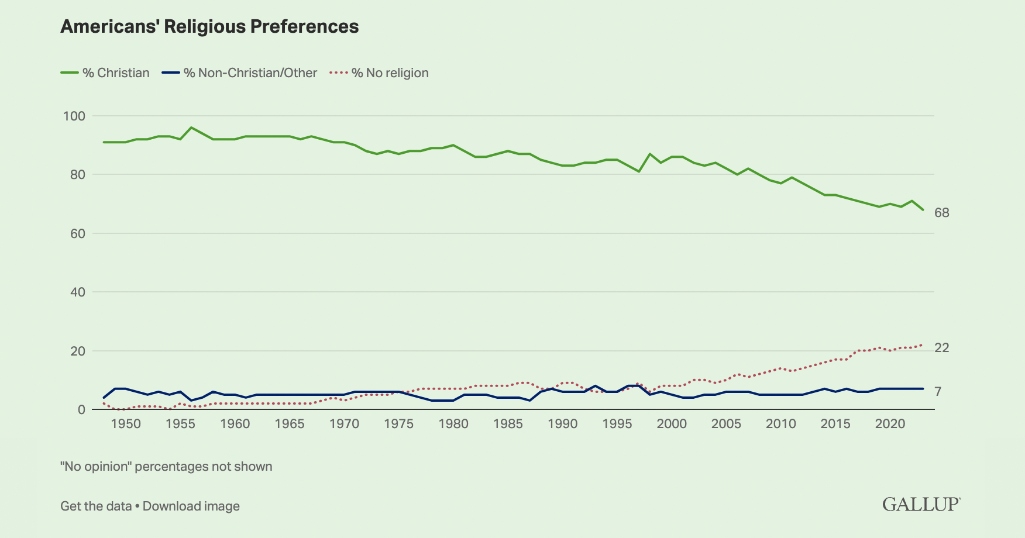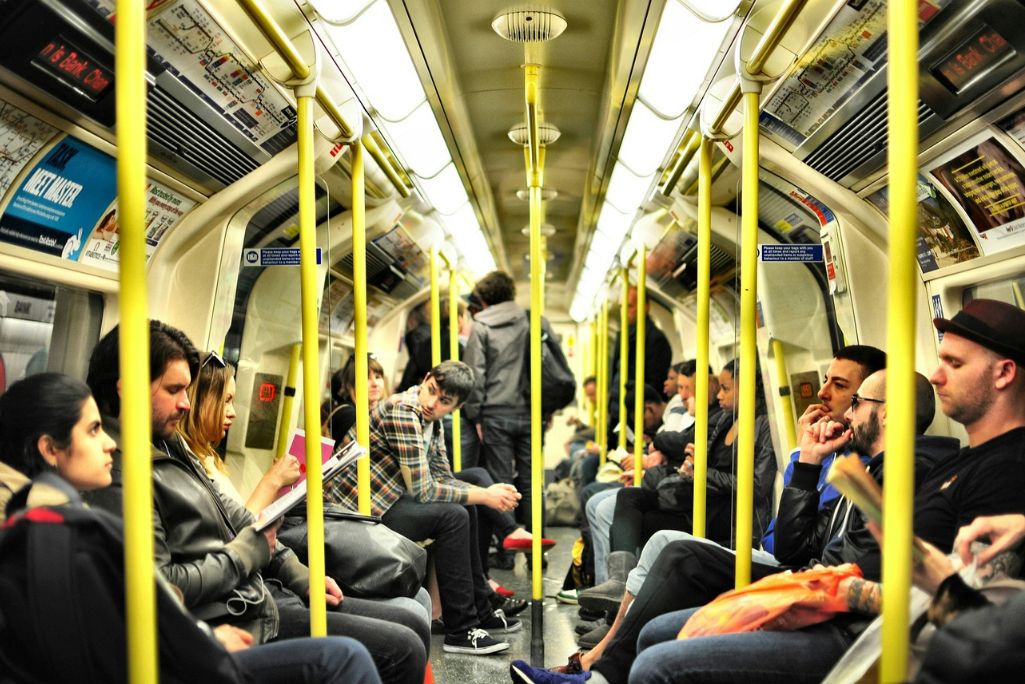
Fewer Americans see religion as an important aspect of their lives, and it shows in their beliefs and actions.
A Gallup survey finds U.S. adults are less likely to identify with a religion, say religion is very important to them, belong to a congregation or attend worship services.
Religious identification
Most Americans still identify with a religion, and Christianity is by far the largest faith group in the United States. But the percentage of Christians has fallen to a historic low. In 2023, 68% of U.S. adults said they were a Christian, the lowest percentage since Gallup began asking in the 1940s.
Specifically, 33% of Americans identify as Protestant, 22% Catholic, and 13% say they are another Christian religion or simply refer to themselves as “Christian.”
While the rapid rise of the religiously unaffiliated appears to be over, that still amounts to more than 1 in 5 Americans (22%). Another 7% identify with a non-Christian religion, including 2% Jewish, 1% Muslim, and 1% Buddhist.

Much of the decline of Christianity has happened in the past 20 years. In 2003, 83% of Americans claimed to be Christian, statistically unchanged from 84% in 1993 and only a slight drop from 86% in 1983. The high-water mark for Christian identification in Gallup’s survey was 96% in 1956.
Importance of religion
Along with the decline of religious identification, fewer people feel religion is very important in their lives. Today, 45% say that is the case, the lowest percentage since Gallup began asking this question in 1965. Currently, 26% say religion is fairly important and 28% say it’s not very important.
The percentage of Americans who feel religion is very important in their lives has remained fairly stable in the mid to upper 50s from the 1980s until a steady decline began around 10 years ago. Since 2012, the percentage has fallen 13 points from 58% to 45%.
Meanwhile, the percentage who say religion is moderately important has remained within 10 percentage points throughout the history of the survey, between a low of 22% and a high of 32%. Only in the last decade, however, has that percentage been near or less than the percentage who say religion is not very important.
From the 1970s through the 1990s, the percentage who saw little importance in religion remained in the low to mid-teens. Since 2000, however, the percentage has grown from 12% to 28%.
Church membership
Currently, 45% of Americans say they belong to a formal house of worship. Similar to the other factors, the percentage of Americans who said they’re members of a church remained stable until relatively recently.
In 1937, 73% said they belonged to a church. In 1999, 70% said the same. Since then, however, membership numbers have remained below 7 in 10 Americans. The percentage fell below half for the first time in 2020. The current 45% is the lowest since Gallup began asking about church membership in 1937.
Gallup reports that the drop has been driven by young adults, more of whom are less likely to identify with a religion. And those who identify with a religion are less likely to be members of a congregation. “But even older adults who have a religious preference are less likely to belong to a church today than in the past.”
This Lifeway Research article originally appeared here.
(EDITOR’S NOTE — Aaron Earls is a writer for LifeWay Christian Resources.)


